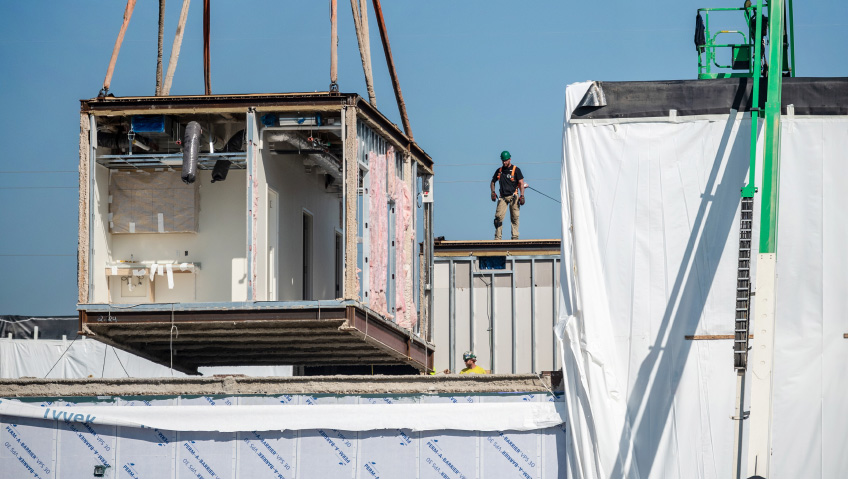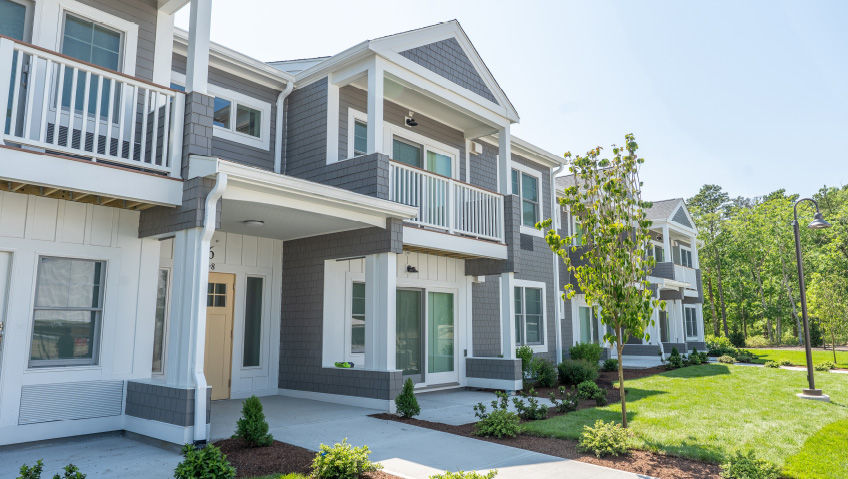Full-service electrical contractor McMillan Electric specializes in commercial tenant improvement and new construction. Under its low-voltage division MNetworks, the company also offers networking, cybersecurity, audio-visual, telecommunication, and riser management services.
The core of McMillan Electric’s success can be attributed to key hiring decisions, the strategic reorganization of its procedures, diversification, and its emphasis on establishing a strong company culture. “We’ve built an extremely strong, one-of-a-kind culture with inspiring leadership, top performing managers and young ambitious people thriving in an environment of mentorship and autonomy where they will continue to grow into the future leaders of our company.” Proof of this culture was recognized last year when McMillan Electric was named in the Top 2 Best Companies To Work For in the entire Bay Area resulting in #1 Best Contractor!
The business started in 1965 when Pat McMillan, Sr. and his wife Charlotte travelled to Sacramento to apply for the business license and permit needed to hang a beer sign and install its outlet. Pat McMillian, Jr., the second generation, took over in 1994 as the company was on the verge of bankruptcy. As part of an effort to restructure and restore it, he enlisted the assistance of Bill Musgrave.
Bill recognized a market need for an electrical contractor that, in addition to its core competencies, could provide all low-voltage and networking services to building managers, owners, or general contractors so they would not have to coordinate with multiple sources throughout the project. Typically, low voltage systems, cybersecurity and networking services are outsourced, and contractors work simultaneously with an external information technology (IT) team. Much low-voltage work is done through IT since most services are networked, and this has caused a convergence of construction and IT. Bill decided to diversify the company to get more involved with the networking side of the business and simplify the electrical construction process. As a result, MNetworks became a new division of McMillan Electric.
“When I came on in ’99, the company was content and cruising along… we were more of a mom-and-pop service/tenant improvement type of shop. Growth and diversity were simply not the focus at the time. We were doing average-sized to smaller projects and had revenue in the $16 million range with forty employees, and now we are a $150 million company with about 350 employees,” says Bill, who first joined the company as a project manager and is now the President and Chief Executive Officer.
Fortunately, McMillan Electric was able to build its way out of the “dot com” recession. Within a few years, Bill was promoted to vice president, and by the time of the next recession in 2008, was named President where he then enlisted David Auch as Vice President and future partner. They helped McMillan Electric survive and found new ways to improve the operation by diversifying and adapting to a changing market. Through this, the company emerged as the largest IBEW San Francisco electrical contractor at the time.
“We employed more people through that recession than any other union contractor in San Francisco,” says Bill. “Through it all, we have continued to grow the business, diversify into different markets, diversify our client base, and diversify our services where we specialize.”
Growing from a small-to-medium-sized tenant improvement contractor to one of the largest in the Bay Area in such a short period is significant. Today, McMillan Electric, owned by Musgrave, Auch and Vice President Ryan Mahoney, can achieve any size project in tenant improvement, new construction, housing or life science construction in conjunction with its networking, cybersecurity, and other low-voltage services.
To make such drastic changes, the company leadership initially focused on building the internal culture of the business. “We had to get better from the inside before we could get bigger on the outside,” Bill says.
To support MNetworks, the company built an in-house network operations center (NOC) with offsite servers. The level of protection for power is N (normal) plus 4 across Dual Power Grids, UPS battery backup and multiple generators. The Network protection is N (normal) plus 7 – meaning over seven internet connections. “The security and monitoring is current, present day technology. We are supporting buildings not only in the Bay Area but across the world. We have a building online in London right now that we support,” says Bill.
A large portion of the business for MNetworks is riser management. Riser management companies manage all the telecommunications infrastructure, wiring, and routing equipment in a building. Often, these are run by call center operations subcontracting the work out to third parties. Rather than do this, the MNetworks option comes with the trusted reputation and experience of McMillan Electric.
“When you call MNetworks on the riser management side, you’re going to get dispatched McMillan employees; we’re not going to call some other company to come out and do the work,” says Bill. “This allows the building owners and managers to have a relationship with their riser manager and build trust and confidence that they are getting employees from the company they’re working with.”
Other in-house services provided by McMillan Electric include offsite production and on-site production, both referred to as OSP. McMillan prefers to plan entire projects upfront to streamline the process as much as possible, using building information modeling (BIM) for “a job when BIM isn’t even required. We’ll get it into [preconstruction] and start to look at how we could most effectively build the job, either offsite through prefabrication or, in some cases, particularly in San Francisco, we will mobilize an OSP unit.”
When mobilizing an OSP unit in San Francisco, the company creates a safe, monitored, productive environment on the project site. There, it can build entire assemblies rather than having to walk up and down a ladder multiple times to assemble the pieces. It is a controlled environment with a workspace at counter height where the electricians can comfortably assemble parts which, in turn, is beneficial for the health and safety of employees while helping the General Contractor to streamline its process, avoid trade stacking and mitigate logistical issues.
Often, when electricians retire around the age of sixty, the next step is to have surgery on a knee or shoulder from all the years of wear and tear on their bodies. McMillan Electric’s OSP approach allows employees to limit the amount of time spent on hands and knees or climbing up and down ladders. It is a much healthier system, and it is especially helpful for retaining an ageing workforce. “In the end, everybody wins. Logistically, there are less people on the job site, less people going up and down the elevators, less materials being hauled into the building, and less garbage being hauled out. We’re able to control our waste and our recycling and, ultimately, in the end, it’s a win for the end-user,” says Bill.
Over the last year, companies have been forced to make major changes and develop entirely new operating procedures to adapt to pandemic conditions. For technology companies, a big part of this shift has been implementing remote working systems and moving employees offsite. This has meant a significant reduction in the demand for new office projects in technology-dense regions in San Francisco and the surrounding Bay Area. Fortunately, McMillan’s diversified approach has enabled it to address this challenge.
Several years ago, the company’s leadership identified a growth trend in the life sciences industry and, believing that this sector would become the next big surge beyond technology, began to build laboratories and medical facilities. Now, as technology companies continue to move their employees into remote positions, the demand for new buildings in the life sciences sector is growing every day.
One landmark example of a McMillan project in the life sciences space is a 150,000-square-foot biopharmaceutical manufacturing facility for Allogene in Newark, California. The project involved retrofitting an existing facility to create a facility for its Car-T cancer therapies.
This posed some unique obstacles. The existing electrical infrastructure was insufficient, and the building itself was limited in its structural weight-bearing capacity. Despite difficulties, McMillan was able to solve these problems and complete the project on schedule, eventually netting the customer more than $1.3 million in savings from its innovative electrical design, pre-construction process and value engineering proposition.
McMillan’s experience in the Bay Area construction market enabled it to identify the shift toward life sciences well before many competitors. Going forward, the company believes that the demand for human-health-related projects is going to be huge stimulus for growth in the Bay Area.
McMillan Electric has grown tremendously in the last twenty years by diversifying its services and simplifying the process from start to finish. “You can call any contractor to build out your space, but in this world of ever-changing technology, they have to be innovative, curious, and adaptable, and we are all of those things,” concludes Bill.






